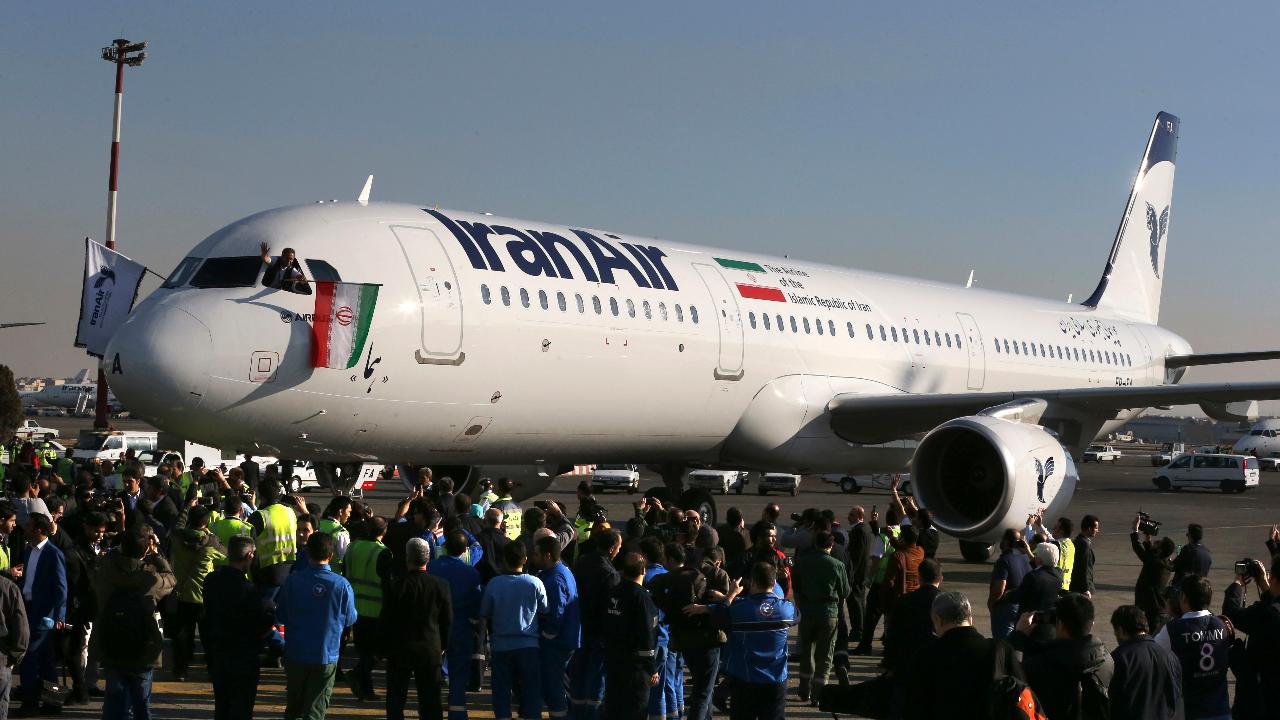Iran deal exit: Boeing plays down revenue loss
Boeing CEO Dennis Muilenburg said Wednesday the airplane maker will “follow the government’s lead” when it comes to business dealings with Tehran after the U.S. withdrew from the Iran nuclear agreement and imposed sanctions.
Muilenburg, speaking at the Economic Club of Washington, played down the potential loss in revenue the Chicago-based company may face as a result of the president’s decision, saying it had not made any production commitments for Iran Air’s orders of the 737 MAX and the 777 wide body.
“None of the airplanes are in our backlog,” Muilenburg said. “So we had been pushing some of those out to mitigate our risk.”
Shares of the world’s largest plane maker were 1.8% higher following the chief executive’s comments.
The deal, crafted in 2015 under President Barack Obama and agreed to by the U.S., Russia, China and countries in Europe, reopened trade with Iran under terms requiring it to reduce its uranium stockpile, allowing Boeing to sell aircraft to Tehran.
Boeing agreed to sell 80 aircraft – 50 737 MAX 8s and 30 777s – worth about $17 billion at list prices to Iran Air in December 2016, in a deal that the company at the time said would create nearly 100,000 jobs. In April 2017, the airplane maker agreed to sell 30 737 MAX jets at a list price of $3 billion to Iran Aseman Airlines, with the option for 30 additional aircraft.
French airplane maker Airbus, Boeing’s biggest rival, signed an agreement with Iran Air in December 2016 for 100 aircraft. Despite being a foreign company, Airbus is also at risk of losing revenue as a result of Trump’s decision because its planes are composed of more than 10% of American-made parts, meaning it must receive permission from the U.S. Treasury Department to sell products to Iran.
The Treasury Department said on Tuesday the U.S. would ban the export of commercial aircraft, as well as parts and services to Iran, after 90- and 180-day wind-down periods.
“The Boeing and (Airbus) licenses will be revoked,” Mnuchin told reporters at the Treasury on Tuesday. “Under the original deal, there were waivers for commercial aircraft, parts and services, and the existing licenses will be revoked.”
Trump announced Tuesday that the U.S. will withdraw from the nuclear deal, calling it “defective at its core” and signed a presidential memorandum to reinstate sanctions on Iran.
“We will be instituting the highest level of economic sanction,” Trump said in his address to the nation, warning that any nation who aids Iran in its quest for nuclear weapons could also be “strongly sanctioned” by the U.S.




















